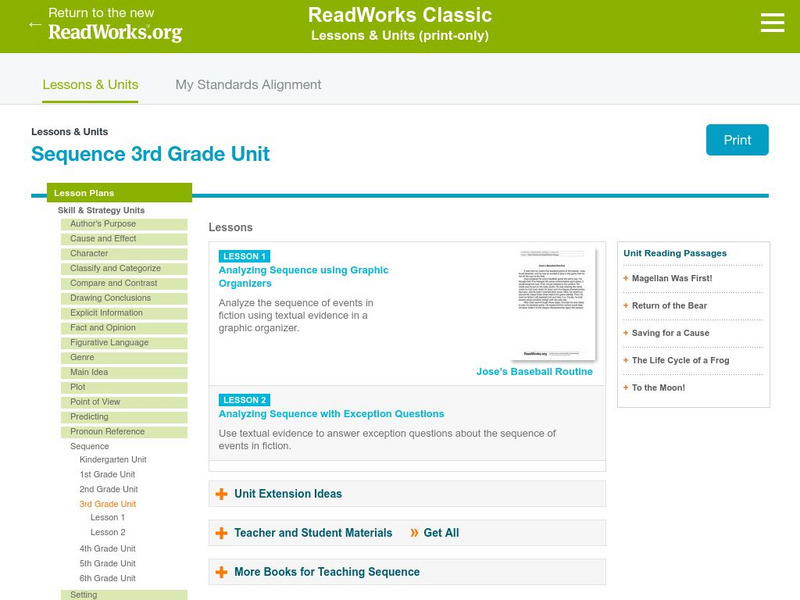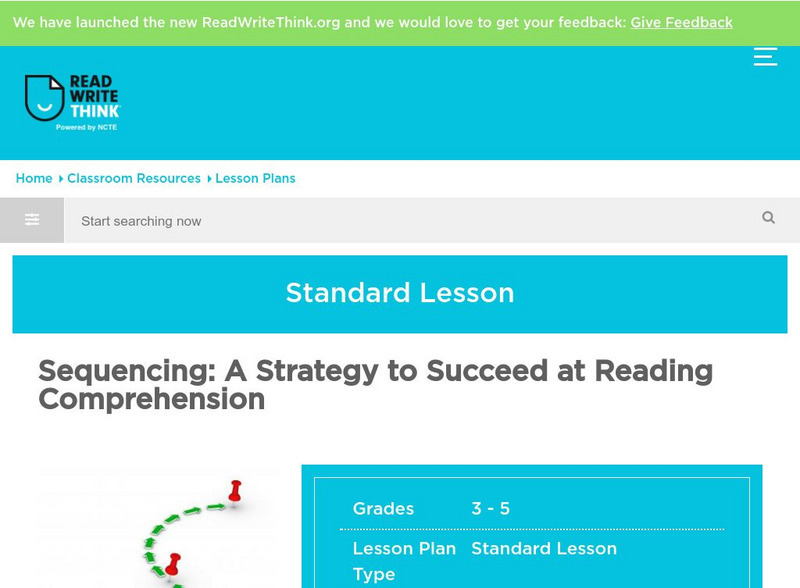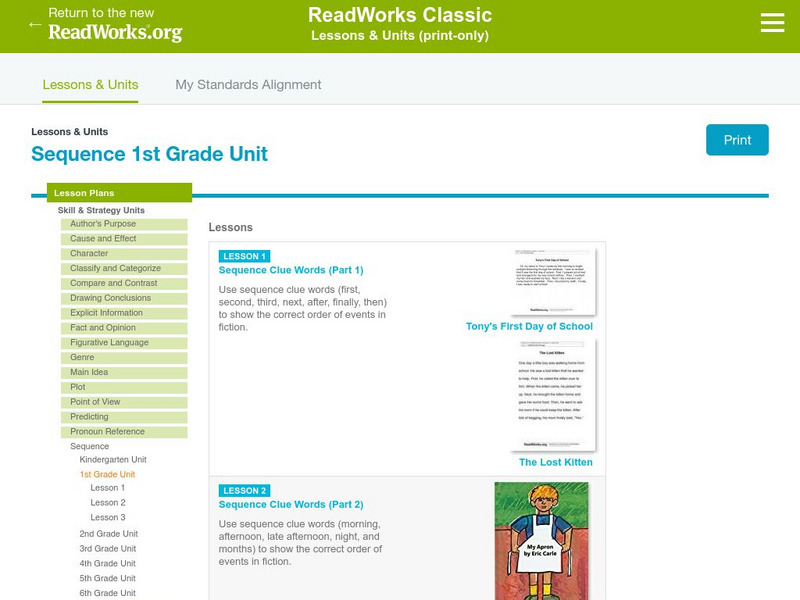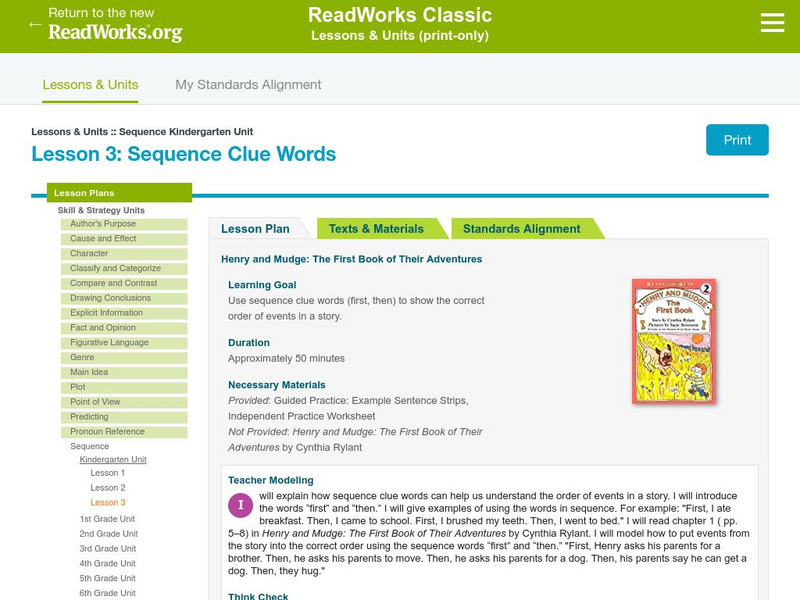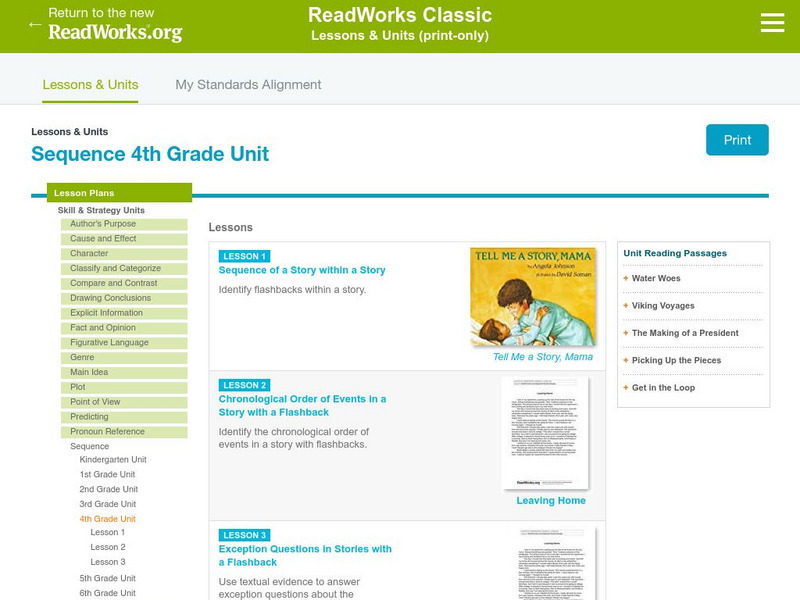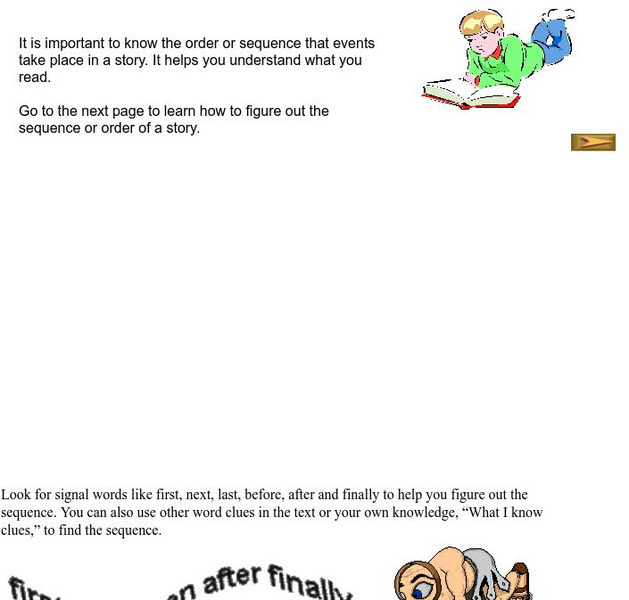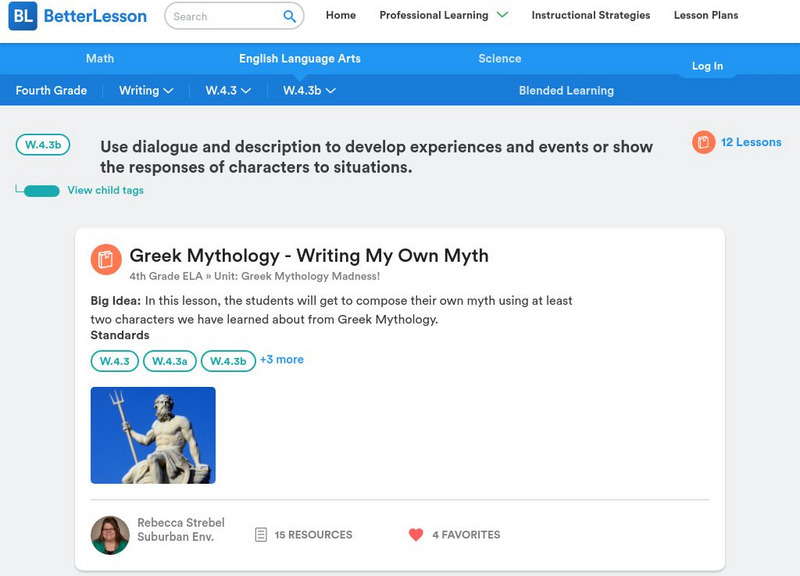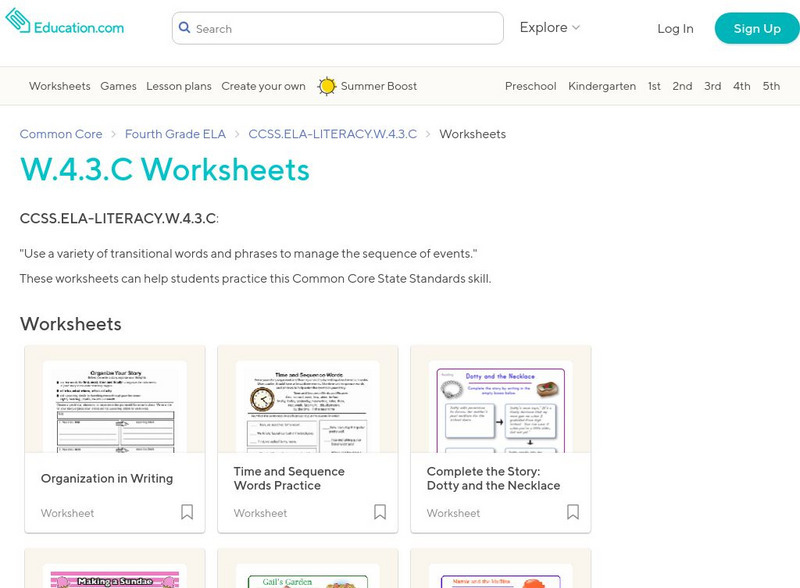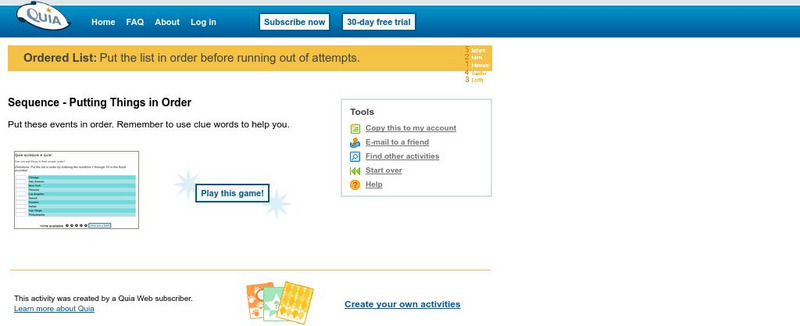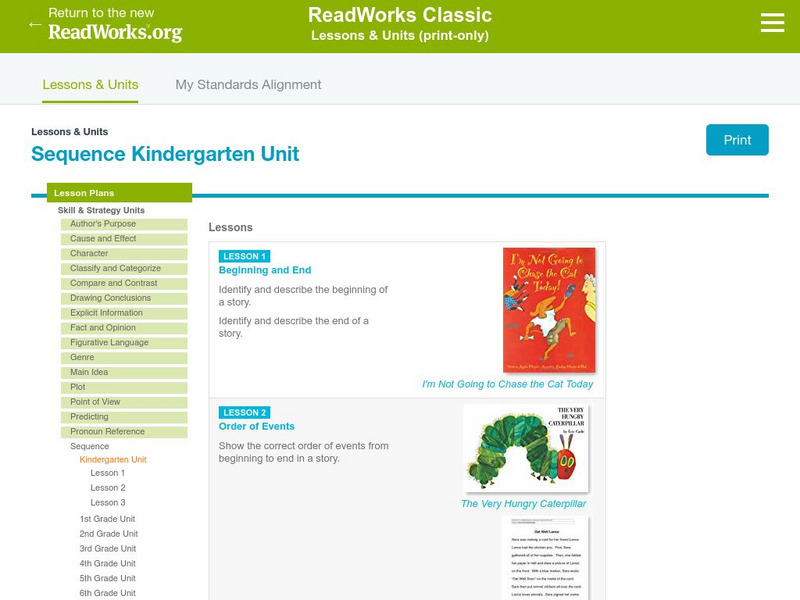ReadWriteThink
Read Write Think: Sequence of Events Chart
A printable graphic organizer to help students sequence events and recognize cause and effect relationships within a story. Directions on how to use this graphic organizer as well as lists of teaching ideas and related resources are also...
Daily Teaching Tools
Daily Teaching Tools: Flow Charts for Sequencing
This Daily Teaching Tools resource provides a graphic organizer. Students will be able to write a sequence of events more efficiently by using this tool.
Read Works
Read Works: Sequence 3rd Grade Unit
[Free Registration/Login Required] This website provides a series of two lesson plans designed to teach students to create a graphic organizer showing the sequence of events in a fiction text. The lessons include ideas for direct...
Alabama Learning Exchange
Alex: Identifying Sequence of Events Using Dr. Seuss
After listening to a reading of Dr. Seuss' Bartholomew and the Oobleck, students use graphic organizers and comic strips to practice sequencing. In a fun activity, small groups follow directions to make oobleck.
Read Works
Read Works: Sequence 2nd Grade Unit: Flashback Sequence
[Free Registration/Login Required] This lesson plan helps young scholars identify the sequence of events in a story with flashback. The lesson includes ideas for direct teaching, guided practice, and independent practice and utilizes the...
ReadWriteThink
Read Write Think: Sequencing a Strategy to Succeed at Reading Comprehension
Contains plans for lessons that use the story of Paul Bunyan to teach about sequencing and order of events. In addition to objectives and standards, this instructional plan contains links to sites used in the lessons as well as...
Read Works
Read Works: Sequence 1st Grade Unit
[Free Registration/Login Required] This site provides a series of three lesson plans designed to teach students to recognize and use word clues to put story events into the correct sequence and retell the story accordingly. Lessons are...
Read Works
Read Works: Sequence Kindergarten Unit: Sequence Clue Words
[Free Registration/Login Required] Teach students to identify the sequence of a story by looking at transitional words such as "first" and "then" in the book Henry and Mudge: The First Book of Their Adventures by Cynthia Rylant. Learning...
Read Works
Read Works: Fourth Grade: Three Lesson Unit: Sequence
[Free Registration/Login Required] A three-lesson unit on sequencing where students use book Tell Me a Story, Mama by Angela Johnson to identify flashbacks and the text "Leaving Home" to arrange details into chronological order for a...
Read Works
Read Works: Grade 2: Three Lesson Unit: Sequence
[Free Registration/Login Required] A series of three lesson plans designed to teach students to retell and summarize a fiction story told in chronological order and a story told with flashback. Lessons are based on the books First Day...
Annenberg Foundation
Annenberg Learner: Story Elements Using Cinderella
Listen to an explanation of the story elements in Cinderella including exposition, characters, setting, sequence, conflict, climax, and resolution.
Beacon Learning Center
Beacon Learning Center: Sequence of Events
Build sequencing skills by looking at transition words like first, next, then, and finally. Read four short paragraphs and use the transition clues to put the events in the correct order. Then use these words while typing an original...
SMART Technologies
Smart: Reviewing Sequence of Events
Students will identify time-order words in order to comprehend passages, place events in sequential order on a time line, and use a flow chart to organize their thoughts for writing in this interactive SMART whiteboard activity.
ClassFlow
Class Flow: The Green Dog Sequencing Story Events
[Free Registration/Login Required] This one page flipchart is to be used specifically with the novel The Green Dog by Suzanne Fisher Staples. The teacher and/or learner will put the story events in the correct order.
Better Lesson
Better Lesson: W.4.3c: Use a Variety of Transitional Words and Phrases
Links to 4 lessons and activities that build student skills in standard W.4.3c: Use a variety of transitional words and phrases to manage the sequence of events.
SMART Technologies
Smart: Sequence Putting Things in Order
Students will practice putting things in order, learn about sequence words, and use sequence words to produce a writing assignment within this interactive SMART whiteboard lesson.
Education.com
Education.com: W.4.3.c Worksheets: Use a Variety of Transitional Words
[Free Registration/Login Required] A site with links to 19 worksheets that can be downloaded and printed for student use while building skills with standard W.4.3.C: Use a variety of transitional words and phrases to manage the sequence...
Alabama Learning Exchange
Alex: Move Over: A Sequencing Lesson
During this lesson students will learn about the sequencing of stories. Students will have the opportunity to retell stories using sequencing words they learn. They will also navigate an Internet site to reinforce the skills they learn...
Quia
Quia: Sequence: Putting Things in Order
Using clue words, students are asked to number a list of events in order from 1-10 and then check answers. Students have up to three attempts to solve.
Read Works
Read Works: Sequence Kindergarten Unit
[Free Registration/Login Required] A series of three lesson plans designed to teach students to recognize the beginning and ending of a story and use word clues to put story events into the correct sequence. Lessons are based on the...
ReadWriteThink
Read Write Think: Buddies Create Power Point Stories
Contains plans for five lessons that ask students to create PowerPoint presentations about shared experiences like field trips or other activities. Students take pictures of what happen, and then explain the sequence of events in words...
Curated OER
Mc Graw Hill: Major Events
Learn how writers use details to describe major events in a story.
Annenberg Foundation
Annenberg Learner: Interactives: Elements of a Story
Explore the elements of a story using the well-known Cinderella story as source material. Learn about setting, character, sequence, exposition, conflict, climax, and resolution.
Other
Write Design: Graphic Organizers: Sequence
Lists and describes several types of graphic organizers which fall under the "sequence" mold, including a ranking table, continuum scale, cycle, bridging snapshots, series of events chain, and a problem/solution outline.


